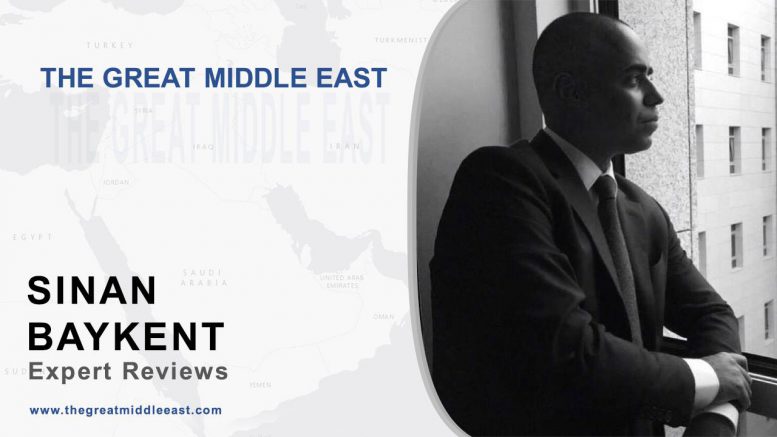Iran is trying to build up its role and authority in the Middle East. For this Iran is taking a series of measures in Iraq, Yemen, Lebanon, Bahrain. In the midst of all of this, Turkey is going to open its military base in Qatar. How will a partnership between Turkey and Iran develop in the region and will it grow into a conflict of interest? With this question we have addressed to the Turkish political analyst Sinan Baykent.
Do you think that in the future it will lead into conflict of interests between Turkey and Iran in the Gulf region?
Conflicts between Iran and Turkey on Middle Eastern issues have a long history. Medias and analysts sometimes choose to express this historical truth as if it was something new and recent. Whereas it is possible to accept the assertion concerning the “intensification” of such conflicts in last years, no one can claim that this phenomenon is a “brand new” one.
Despite all divergences that may concern the two states, they have also many points in common; both have deep-rooted government traditions and share the intention to lead the region and sometimes even Muslims abroad. The Syrian crisis that started in 2011 was full of political and religious opportunities for both countries.
For Turkey, it was a matter of proving itself as a rising power. It could have enabled Turkey to show the international community its influence over Sunni populations and especially to spread its Muslim Brotherhood orientated “soft Islamic” ideology. Indeed, Turkey (most likely the AKP government) had played a great role during the transitional period in Egypt and helped the Muslim Brotherhood organization to conquer power in the first free elections. Erdoğan and his party thought that Assad would not hold for long and predicted the scenario would be similar with Egypt’s.
For Iran, however, things were more complicated. Without the Baathists in power, Iran would have lost connection with Lebanon and Yemen where live huge numbers of Shiites. Iran is testing its military capabilities in Lebanon trough Hezbollah against Israel and in Yemen through Ansar Allah against Saudi Arabia. Syria is essential to Iran in the arm traffic to Lebanon, thus to Hezbollah. Yemen, on the other hand, is a strategically important country to weaken the zone of influence of Saudi Arabia. The fall of Assad could have meant the fall of Hezbollah, leaving per se Lebanon to Saudi Arabian influence. In addition, Iranian officials thought that after Syria, will inevitably come Iran. This is why the Syrian crisis meant for Iran a matter of survival in the first place.
In sum, we had in 2011 on one hand a country aiming to prove itself as a rising regional star (Turkey) and on the other hand a country trying to prevent its own downfall (Iran). Frankly speaking, I don’t know anyone who was expecting Iran to prevail in such a glorious manner in Syria. Iran went “all in” in Syria; they sent their best generals, best elite fighters and best allies such as the Hezbollah and even Afghanistan Shiites. As the Syrian crisis expanded in Iraq, they also benefited from İraqi Shiites’ active support. They were successful in convincing the Russians to act “urgently” and most importantly “militarily” in Syria. In the end, they won some significant victories on the field but also in terms of diplomacy. Thanks to the involvement of Iranian generals against ISIS and with the help of the most incapable U.S President of the entire history, Iran signed a nuclear deal that lifted tough economic sanctions that was obstructing its growth.
Meanwhile, what did Turkey do? Turkey lost everywhere, on every front. The Free Syrian Army that Turkey was backing almost entirely disappeared. Jaish al-Fatah – the army of resistance jointly created by Turkey, Saudi Arabia and Qatar lost almost every battle on the ground; today the Jaish al-Fatah controls less that 5% of the Syrian territory and is trapped between Assad’s forces, Kurds and ISIS. Furthermore, Turkey has put its own territorial integrity in jeopardy by allowing the Syrian wing of the PKK to gain control over the entire Turkish-Syrian border except the Azaz-Jarabulus axis. A special mention should also be made to numerous bombings that took place in Istanbul, Ankara, Diyarbakır and Kilis – all assumed by ISIS and the economic burden triggered by some three millions of refugees who entered Turkey.
What could happen in upcoming months and years?
It is a very difficult task to make projections on the Middle East. Iran seems to have won the first round of the chess play. Nevertheless it all depends on Turkey from now on. The Turkish military base in Qatar is an important but insufficient step towards the path of reactivation. Whereas the first leitmotiv of Iranian engagement in Syria was survival, Turkey’s interventions were mostly guided by ideological sensibilities. And this is why all went wrong. Turkey should, in the near future, firstly focus on its own national survival and interests. Once the survival secured, the ideological-political gains will follow, as it was the case with Iran. For Turkey, the first problem to solve will be the PKK-controlled Rojava region – a real and concrete threat to Turkey’s national security. In order to solve this vital problem, the sole and only solution is to exercise the Raison d’Etat that is above all actual politicians and political currents competing for power in Turkey.
Twitter @sinanbaykent



Be the first to comment at "Sinan Baykent: The Turkish military base in Qatar is an important but insufficient step towards the path of reactivation"